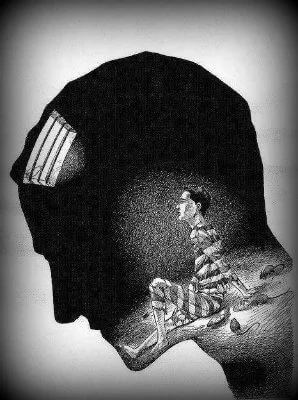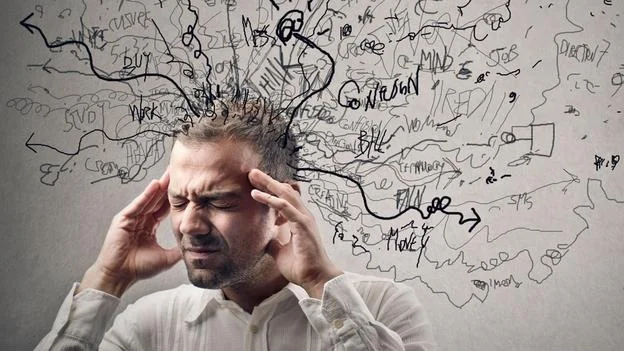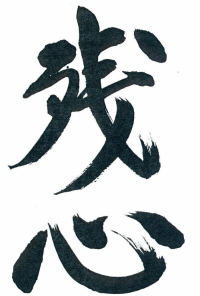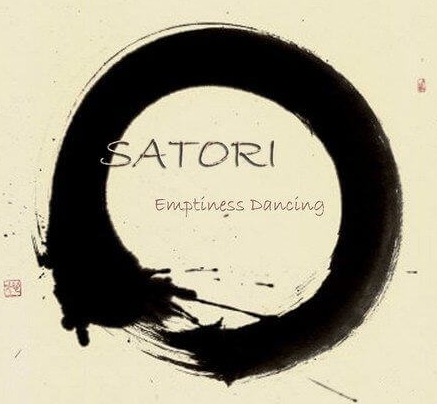Remold your life
“The border you fear to cross holds the treasure that you seek to find”
I've often thought that in a strange way, most of us are living with two identities
The safe identity, the mask we wear in daily life, and the secret identity inside of us, the mask we are dying to rip off, the life we yearn to set free, but feel somehow we can't for whatever reason.
Between the two stands what I call the gap.
Closing the gap
I believe there are some practical way to close that gap - ways we can re-mold our lives into something that makes sense to us, so that the life we long to live can breath. It requires both an internal and an external strategy.
I've always believed that if you really want to start living more authentically, these ingredients will help you do that with more grace and clarity. They are qualities and ideas that create transformation. They are:
The quality of the questions you ask yourself.
The quality of the conversations you engage in.
The quality of the ideas you choose to say yes to.
The quality of taking courageous action
The quality of being curious like a child.
The quality of being friendly with uncertainty.
These are the building blocks for designing anything new in your life.
Let's face it, we all hope life may become better by chance ( lucky breaks ) and it may....
but it will get better by design ( conscious volition )
Mind games
To understand your own mind, which is the single biggest resource you have at your disposal, is the most powerful way to re-mold your life.
Do I want my thoughts, feelings and emotions to support my happiness or destroy it?
Emotional flexibility combined with Mindfulness training is the foundation on which you build a stable contented mind, and in that space over time you become able to control your own destiny, because you can control the one things that matters. Your own reactions to any event.
One of the things I often have to remind myself of is not to forget who I am in the quest to get where I'm going, and it's a valuable way to train the mind.
The daily grind grinds up our values
In the daily race of modern living, values are often the first to be forgotten or left behind, and so when we arrive at our destination, we have lost something more important than the goal itself. We have lost ourselves. We have lost the person we want to be, and so we put the mask on.
Here are a few fire starters to get your going on taking of the mask.
Where are you losing "yourself" these days?
What interesting ideas are you not exploring because you're on auto pilot?
How often are you having conversation that set your soul on fire?
Where are you not being curious enough in your life?
A value worth cultivating
I like to encourage people who work with me to consider making peace of mind a high target value and designing life and accomplishments around that idea.
Peace of mind means different things to different people. One thing we can all agree on is it suggests a state of tranquility, even under difficult circumstances.
Peace of mind is a clear conscience.
Most people just don't know how to turn off the mind, and they start to think it's normal to live this way.
Can we learn not be blown off course by daily life and all its problems?
Can learn to carry our peace of mind with us everywhere we go, like we carry our smart phones?
I believe the answer to those questions must become YES.
Restorative states
1. Mushin: Mind Without Mind
Mushin simply means that your mind is not fixed on emotions or judgments. This may seem pretty impossible, but it is something you can train for - think about it in the context of your own life — how often do you immediately rush to judgement when you come across a new idea, a challenging problem or person in your life?
Maybe you just met a new person you were introduced to at a party, but they were dressed in a really weird outfit - so you put them in a box in your mind of " not my type." In my own earlier life as a hairdresser I often did this, as I would meet people from every walk of life, and boy, how often was I dead wrong! Some of the most fascinating people I met in my career came in some pretty strange packages.
We often seee these judgments about homeless people on the street - they are unimportant and broken, or a nuisance to be avoided, and yet, they are human beings with a story.
Or perhaps you just got some bad news about a project or idea you're excited about - your mind probably jumped to conclusions that are very negative and then we often looks for a scapegoat to blame.
Why is the mind so reactive?
It’s a defense mechanism to quickly decide if something in your environment is dangerous or not.
Most of the time we learn gradually, building connections between actions, events and outcomes.
But sometimes something happens and we jump to a conclusion by rapidly associating a cause with an effect.
Neuroscientists have identified that we are most likely to jump to conclusions when we are uncertain about a situation.
Jumping to conclusions without evidence is more likely to lead you in the wrong direction. By practicing Mushin, you can keep an open mind and avoid making hasty decisions. So the next time you’re faced with a new problem, choose not to attach an emotion to it and act with a clear, objective mind.
2. ZANSHIN: PRESENCE & AWARENESS
Zanshin is a state of presence. It could be called a state of of relaxed alertness. A literal translation of zanshin is "remaining mind." In essence, it’s mindfulness in action.
Paying attention to every step we take in a relaxed way to increase productivity, emotional intelligence and feeling connected to what we are doing is another way of describing it.
Taking pleasure and paying attention to the ordinary things life has to offer can help quiet much of the monkey mind, that unnecessary chatter in your head that robs us of energy and joy.
Mindfulness also helps to lessen the gap between the “ideal person” you want to be and the “actual person” you are now. We all have ideal expectations we may not be able to live up to quite yet... it's ok.
The next time you’re doing a daily task, see if you can notice what's happening in a new way. See if you can turn it into a mindful moment or meditation. Eventually you start to see there is no big or small. Just gentle awareness of your own life unfolding.
3. Satori: The Natural State
Satori is the natural state of your mind. It could be said to be the uncovering of who you really are. Satori is a term for "enlightenment" in Zen Buddhist tradition. The word literally means "understanding."
You could compare it to when you were a child and had a pure state of mind - curious, excited and open.
It is a profound feeling of peace, a knowing within yourself, without doubt, something deep and true. For some people the experience may only be a momentary glimpse, and it may appear very abruptly and surprise you - for others it may be an extended experience. However, a universal aspect is that the knowledge of the experience is lasting.
Practicing satori is difficult with all of the distractions we face. One of the best ways to access this natural state is through meditation.
Meditation has been shown to reduce stress and anxiety while increasing your ability to concentrate and learn. Sitting in stillness can seem rather daunting, but it’s actually quite simple. All you have to do is sit down comfortably with your back supported, close your eyes and allow the breath to be as it is. You can start small by sitting in silence like this for one minute. If you find it challenging to sit still and quiet your mind, you can use a natural object like a candle flame to concentrate on and do an eyes open meditation.
Just by observing a simple flame, you can rest in natural mind. There are many simple meditation techniques that are quite effective you may wish to try for yourself.
Some final thoughts
The wisdom principles of Mushin, Zanshin, and Satori will help you live your best life every single day.
Tranquility, calmness, and time for reflection are restorative states - antidotes to the stress of daily life, which requires our mind and thinking into constant engagement and processing. Many psychologists I have spoken with consider tranquility to be a psychological need.
Mindful practice is the art for seeing and reminding yourself in every moment that you are making a commitment to yourself and to a higher value than just the latest crisis.
By learning to stop becoming immersed in situations, environments, and relationships that disrupt our tranquility, we are becoming more interested in taking good care of ourselves, and in doing so, we can begin to take better care of our world.
And even if we do have to spend time in environments that are disruptive, we can learn through the power of our own self-awareness to transform them into much friendlier places.
By taking simple steps to discover your high level values, learning how to practice mindfulness daily and using whatever is in front of you as the fuel for your transformation, you will be walking the path to designing a life that makes sense to you.





